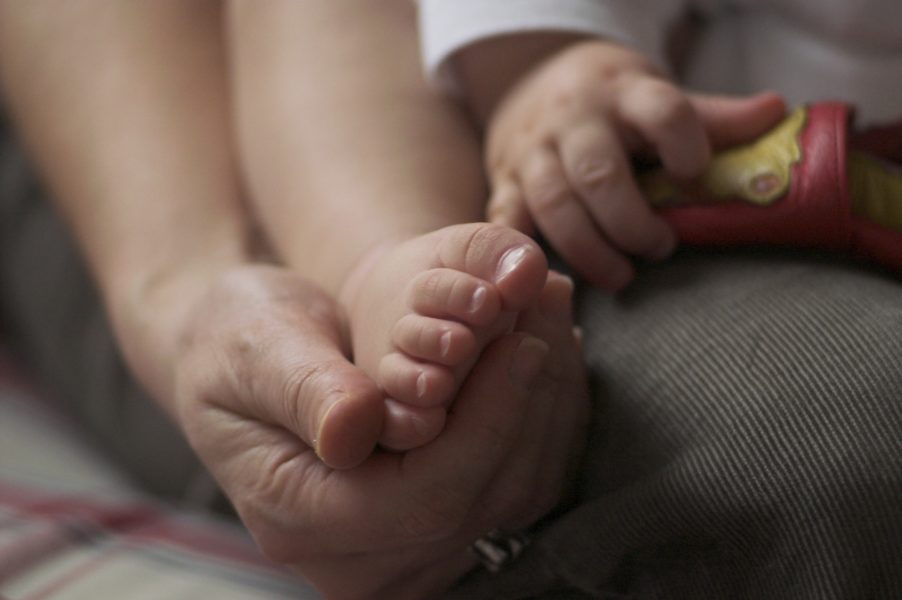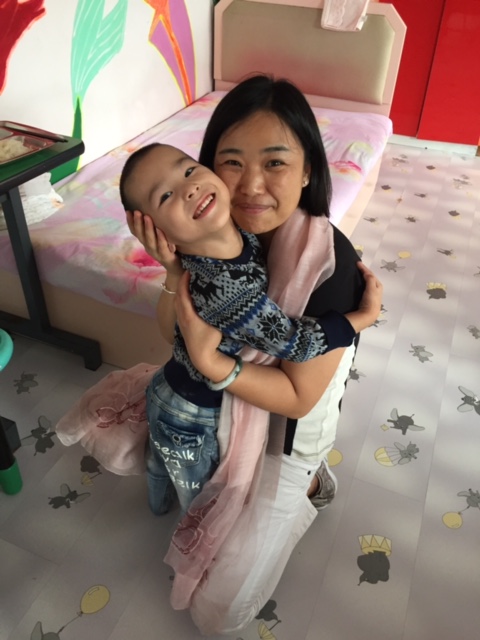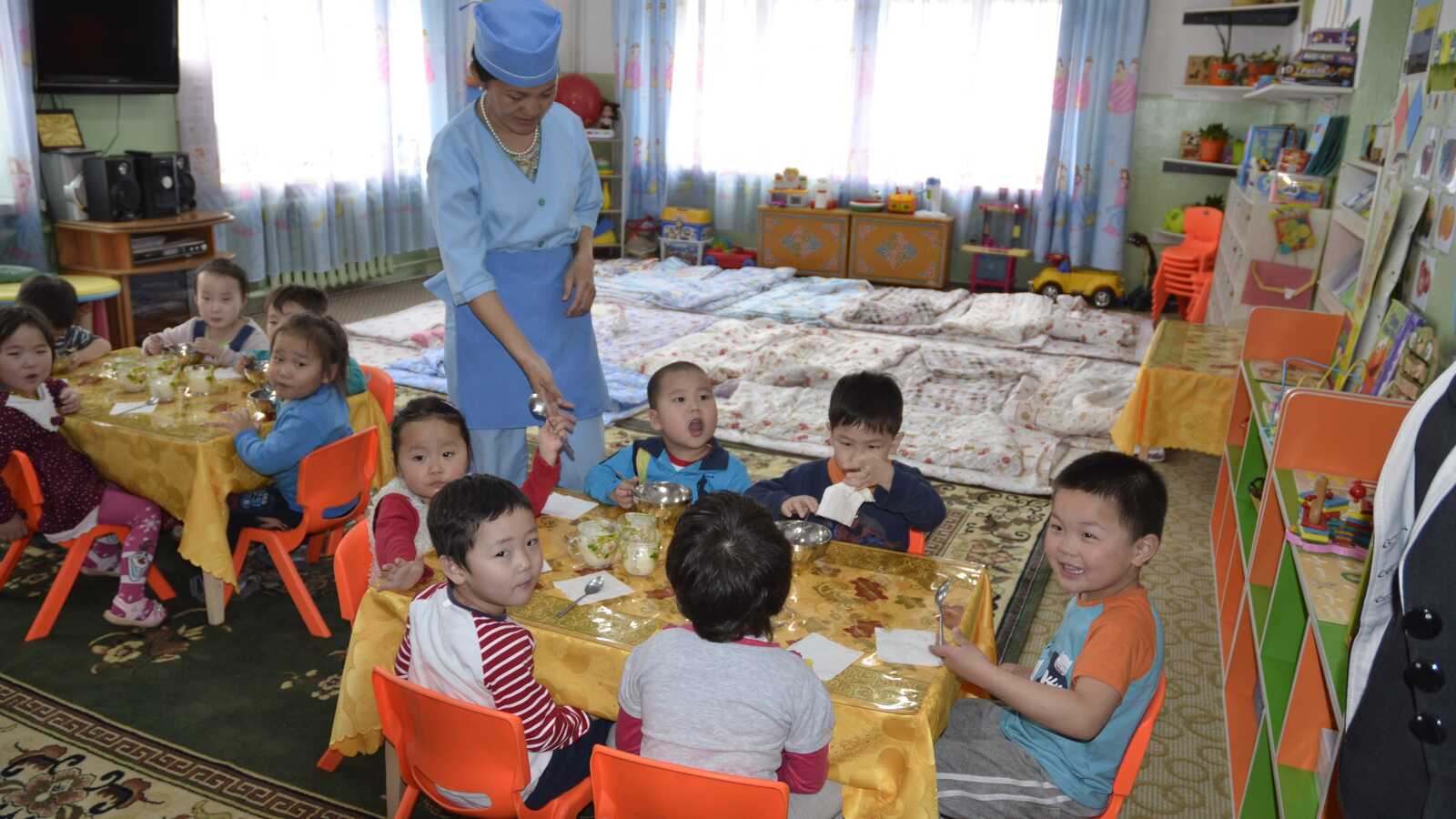After a stroke left her paralyzed, one single mother in Mongolia considered taking her own life. But empowered by the support of Holt sponsors, she regained hope — and her children regained the courageous woman they call mom.
The year 2010 was an especially brutal year in Mongolia. A devastating summer drought followed by an extreme winter — a weather phenomenon known as dzud — wiped out millions of livestock and affected the livelihoods of hundreds of thousands of already struggling families. While distressing for the population, this pendulum of weather is nothing new for Mongolia, where winter temperatures can plummet to as low as -40 degrees Fahrenheit, and summers are often short but very humid.
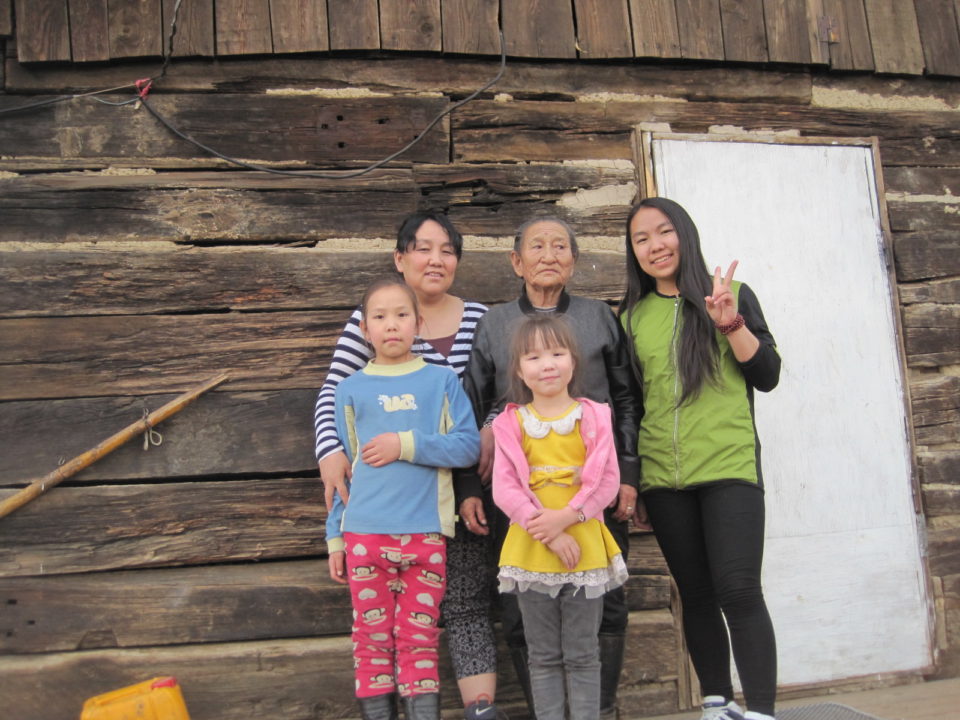
But the 2009-2010 season was unusual in Mongolia. The winters were much colder, and the summers were much hotter.
On one of these particularly scorching summer days, 45-year-old *Sur, a single mother of five children, was selling small items in the Ulaanbaatar marketplace — a job she started in Mongolia’s capital after her husband left both her and their children to fend for themselves. In a country where extreme temperatures have wreaked havoc on the country’s economy, men abandoning their families in this city of over a million people has become an unfortunate and all-too-common occurrence, according to Holt Mongolia staff member Gantuul Bataa.
“Many families have a life in the countryside before moving to the city,” says Gantuul, whom we interviewed during Holt’s international summit in Eugene this past summer. “But due to drought or due to the cold, they lose everything. Their livestock is gone. Then they come to the city, and the culture shock for many of them is great so the husbands often will abandon the wives and the kids.”
“Due to drought or due to the cold, they lose everything. Their livestock is gone. Then they come to the city, and the culture shock for many of them is great so the husbands often will abandon the wives and the kids.”
Gantuul Bataa, Holt Mongolia staff member
Such was the case with Sur and her children. After he left, she had such limited income that she could not afford to even feed her children. Eventually, she made the agonizing decision to surrender her two youngest children to a government-run orphanage with hopes that one day, she could make enough money in the city to bring them home again. “This family’s circumstances went from here,” Gantuul points her finger to the ceiling, “to here,” bringing it down toward the floor, “in a matter of a year.” Neverthless, Sur continued on for her children. She worked long hours, went without food, visited her two children often and prayed for the day when she could bring them home.
But then, one day, Sur’s determination to do all she could for her family became too much. On that sweltering summer day six years ago, she lost consciousness in the marketplace. She had suffered a stroke.
For the next three months, Sur stayed confined to a wheelchair in an Ulaanbaatar hospital. The whole time, as she tried to recover, she thought only of her children. With both of her legs now paralyzed, her ability to take care of her family went from exceptionally difficult to impossible. “While she was in the hospital, she could not find a way to keep her children fed,” explains Paul Kim, Holt’s director of services for Mongolia. Sur left the facility without the use of her legs, without money and without hope. When she returned home, her mental state also began to deteriorate.
“Just think of her life,” Paul says. “She has five children and she’s on her own, and now she’s paralyzed.”
Faced with overwhelming obstacles and feelings of failure, Sur considered taking her own life. But her children and the thought of leaving them alone kept her from this dark fate. Instead, she asked God for help, and prayed for an answer.
One day, while visiting her children at the orphanage, she learned about Holt and how they helped families like hers. She contacted Holt’s staff in Mongolia immediately. When our staff arrived at her home, they listened to her story. She told them about how her husband had left them, about her two youngest children living in an institution, her inability to feed her other three children, and about how a stroke had left her partially paralyzed and severely depressed.
“Do you want to take your children back from the institution,” Gantuul recalls asking Sur.
“Definitely, yes, but I have nothing,” Sur replied.
“Okay then, take your children back and we will help you with everything,” Gantuul told her.
“Take your children back and we will help you with everything.”
As always, when families we serve face devastating hardships like these, Holt’s primary goal is restoration and, ultimately, family reunification. We aim to strengthen families so that they can remain intact or, if they become separated, we strive to reunite them. Five years ago, Holt developed our family strengthening program in Mongolia and began providing financial support for 20 families in the Songin district, an impoverished region of Ulaanbaatar composed of 32 subdivisions and 65,423 families. Since that time, the program has grown to 190 families, most of them headed by single mothers.
Three months after Holt’s initial contact with her, Sur had regained her strength and stability — and was able to bring her children home. Holt matched Sur’s children with sponsors, whose monthly support helped provide nutritious food, clothing and medical care as well as resources to enroll her children in school. With her children’s basic needs met, Sur could focus on her physical recovery and her mental health.
“We are providing support to the children, but it really provides support to the family as a whole,” Paul says of Holt’s child sponsorship program. “It gives mothers like Sur hope for their lives. Her family has a chance now, and having a chance brings so much hope.”
Today, Sur can stand and walk with the support of a cane and has continued her work in Ulaanbaatar. “We talk with her often,” Gantuul says. The children are attending public school, and doing well academically. And the children’s grandmother now lives with the family, helping to relieve some of the childcare burden from Sur.
Sur says that before Holt and Holt sponsors empowered her family, she would always look to the sky wherever she went and ask for help. “Holt’s support was God’s gift to her,” Gantuul says. “It was through Holt that she was reunited with her children, and now they are all good.”
*name changed
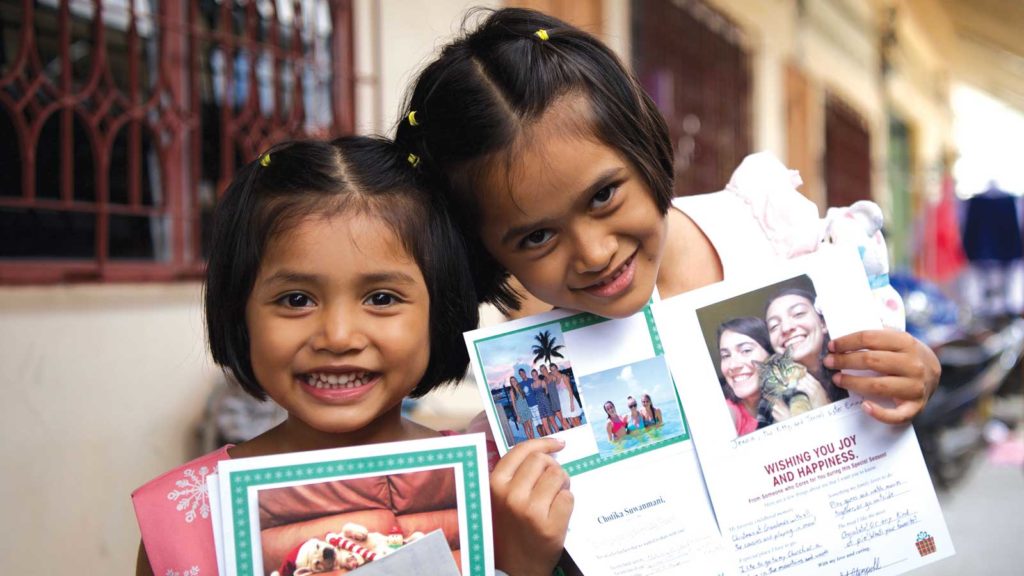
Become a Child Sponsor
Connect with a child. Provide for their needs. Share your heart for $43 per month.
